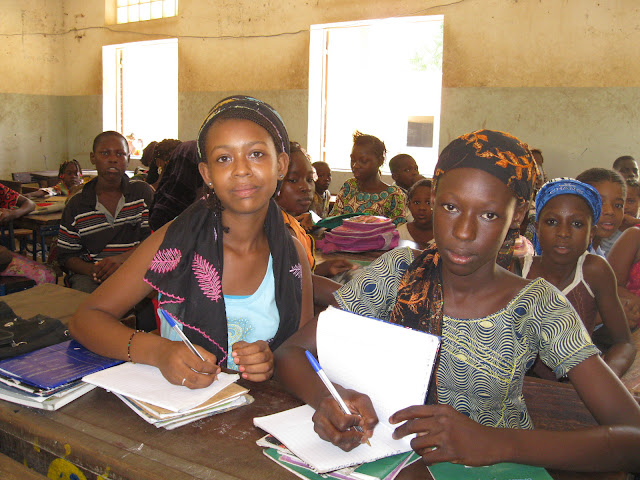Resilience in simple terms/ La résilience en termes simples
What does resilience mean for 13 year old Minthi?
By Léna Thiam, Education specialist in Emergencies in Plan International- West Africa Regional Office
Resilience, resilience, resilience… Everyone speaks about it in the humanitarian world. This word has become actually very “trendy”. But what does resilience really mean?
According to Boris Cyrulnik (the person who invented the word), it is the art of navigating in the torrent.
Minthi´s story is a good example of how resilience can help improve people´s life . 13 year old Minthi managed to escape Islamic groups and save her studies.
Minthi is 13 years old and in the 6th grade.
 |
| Minthi. CREDIT: Plan International |
Her smile hides the challenges she faces trying to learn each day. Eight months ago, Minthi arrived in Segou with her family, leaving the violence in her hometown of Kidal behind. READ MORE
A stranger in her own country, she doesn’t speak the local language and carries the fear of her journey and experience with her.
Minthi registered at the local school to continue her studies as soon as her family settled in Segou. The transition was difficult and she fell behind in her work and studies despite tremendous effort. The school facilities were crowded with many other new students, just like her. She considered dropping out of school, until she learned of an opportunity from Plan.
Now, Minthi attends “catch-up” courses organised for 450 students across 25 schools in Segou by Plan. In the course, students learn maths, French and other subjects. Activities are organized in child friendly spaces and healthy snacks are served. Displaced students enjoy returning to school, catching up on their studies and making new friends.
 |
| Minthi with her new school made. CREDIT: Plan International |
In addition, the students most traumatised, in some way by the violence they witnessed in the north, engage in activities that address their emotions. According to Ms Samake, coordinator of remedial courses funded by Plan, all displaced children from the northern regions need psychosocial support: "There are more than 100 students here who show signs of learning challenges caused by emotional distress. Plan will continue to offer appropriate follow up programmes to ensure emotional stability while advancing their education" she said.
Plan International in West Africa


Children are the future in the Sahel. If NGOs don´t put the focus on them, then just forget it. All of the other actions taking place in the region will be completely useless. Building resilience begins and ends with children.
ReplyDeleteCompletely agree! Congrats to Plan for their great work in the region
ReplyDeletePlan is doing a great work, indeed, but also all the local NGOs in the region! Working locally and earning nothing.
ReplyDelete